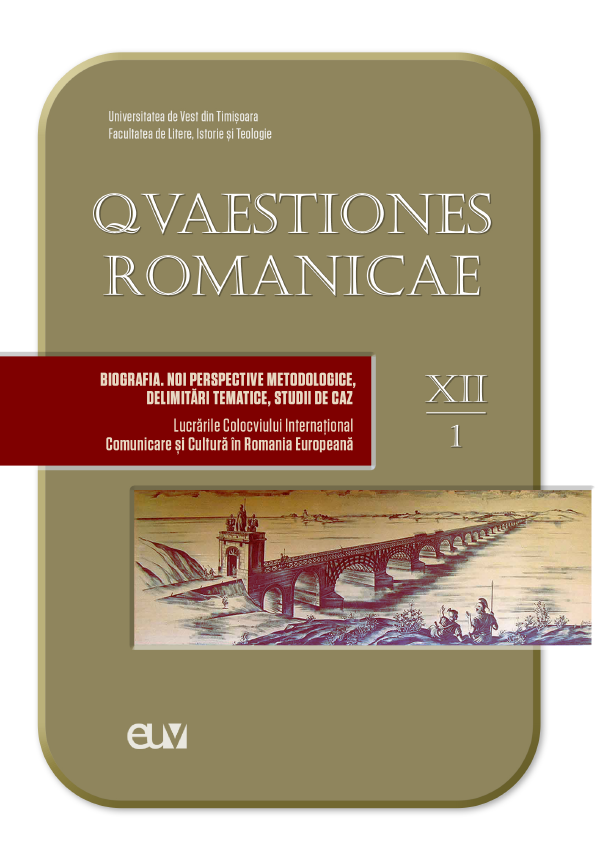La biblioteca come biografia. Il ruolo della lingua e della letteratura italiana nell’educazione delle famiglie aristocratiche ungheresi
Abstract: (The Biography from the Library. The Role of Italian Language and Literature in the Education of Hungarian Aristocratic Families) The presence of Italian culture, art and literature in the history of Hungarian civilization is well documented in the catalogues and, in the library resources of the Hungarian aristocratic families, despite the dramatic events of previous centuries. The works published in Italy in Italian and present in the private libraries of Hungarian families still testify to the centuries-old presence of the language and culture in Hungary today. In my speech I will present my research regarding the inventories and wills of aristocratic families. Every book published in Italian that is still found today in the libraries of Hungarian families also testifies to the linguistic preparation of the Hungarian reader, it is part of his biography. Each book, when read in Italian, becomes an Italian language manual as it strengthens not only linguistic skills and knowledge but also cultural ones. If we want to outline the most important stages in the history of Italian language teaching in Hungary, we must underline the scientific activity carried out by the Hungarian Italianists who took the first steps to reconstruct the origins of the concept of language and culture teaching Italian in Hungary. The focus of my intervention is the detailed analysis of the pedagogical conception of Hungarian aristocratic families and its representation in the family’s private library. The pedagogical program of the Theresianum will be presented, especially by Abbot Michael Denis. I will present how science-, and librarianship founded by Michael Denis was inserted into the Hungarian aristocratic education and how it promoted the diffusion of Italian culture in Hungary in the private library of the Festetics family.
Keywords: library, biography, education, György Festetics, Italian culture.
Riassunto: La presenza della cultura, dell’arte e della letteratura italiana nella storia della civiltà ungherese è ben documentata nei cataloghi, nelle fonti delle biblioteche delle famiglie aristocratiche ungheresi, nonostante le vicende drammatiche dei secoli passati. Le opere pubblicate in Italia in lingua italiana presenti nelle biblioteche private delle famiglie ungheresi testimoniano ancora oggi la presenza secolare della lingua e della cultura in Ungheria. Nel mio intervento rappresenterò le mie ricerche riguardanti gli inventari, i testamenti delle famiglie aristocratiche. Ogni libro pubblicato in italiano che si trova ancora oggi nelle biblioteche delle famiglie ungheresi testimonia anche la preparazione linguistica del lettore ungherese, fa parte della sua biografia. Ogni libro, nel momento in cui viene letto, in lingua italiana diventa un manuale di lingua italiana poiché rafforza non solo le competenze e conoscenze linguistiche ma anche quelle culturali. Se si vuole disegnare le tappe più importanti della storia dell’insegnamento della lingua italiana in Ungheria bisogna sottolineare l’attività scientifica svolta degli italianisti ungheresi i quali hanno mosso i primi passi per poter ricostruire le origini della concezione dell’insegnamento della lingua e della cultura italiana in Ungheria. Nel focus del mio intervento sta l’analisi dettagliata della concezione pedagogica delle famiglie aristocratiche ungheresi e la rappresentazione di essa nella biblioteca privata della famiglia. Sarà rappresentato il programma pedagogico del Theresianum specialmente dell’abate Michael Denis. Rappresenterò come la scienza, la biblioteconomia fondata da Michael Denis si inserì nell’educazione aristocratica ungherese ed essa come promosse la diffusione della cultura italiana in Ungheria nella biblioteca privata della famiglia Festetics.
Parole-chiave: György Festetics, biblioteca, educazione, cultura italiana, biografia.
